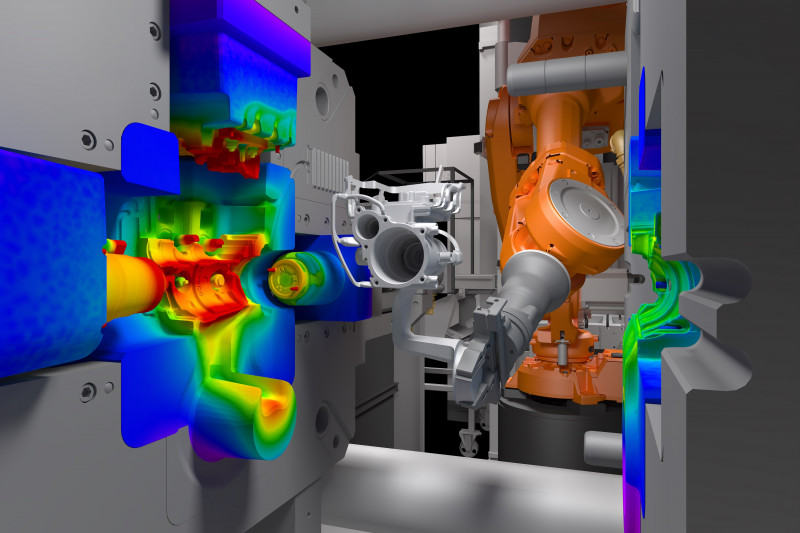In the world of precision engineering, finding the perfect material to create intricate and precise components is crucial. One material that has gained considerable attention in recent years is magnesium. Magnesium die casting offers a lightweight solution that is not only versatile but also provides excellent strength and durability. This article will explore the benefits and applications of magnesium die casting in precision engineering.
First and foremost, magnesium is known for its exceptional lightweight properties. It is one of the lightest structural metals available, weighing approximately two-thirds less than aluminum and one-fourth less than steel. This makes it an ideal choice for applications that require reduced weight without compromising on strength and performance. Industries such as automotive, aerospace, and electronics have greatly benefited from the use of magnesium die casting due to its ability to reduce the overall weight of their products.
Apart from its lightweight characteristics, magnesium also offers excellent mechanical properties. It has a high strength-to-weight ratio, which means that it can withstand significant loads while maintaining its structural integrity. Additionally, magnesium has excellent dimensional stability, ensuring that the components produced through die casting maintain their shape and precision even under extreme conditions. These properties make magnesium die casting an ideal choice for applications that require high-performance and precision engineering, such as engine components, gearboxes, and electronic housings.
Another noteworthy aspect of magnesium die casting is its superior thermal conductivity. Magnesium has one of the highest thermal conductivity values among engineering materials, allowing for efficient heat dissipation. This property is particularly advantageous in applications that involve high temperatures or require effective thermal management, such as power electronics and LED lighting. By dissipating heat more efficiently, magnesium die-cast components can operate at lower temperatures, enhancing their lifespan and overall performance.
Furthermore, magnesium offers excellent electromagnetic shielding properties. This makes it an excellent choice for applications that require protection against electromagnetic interference (EMI). The ability to effectively shield electromagnetic waves makes magnesium die-cast components highly sought after in the electronics industry, where interference can negatively impact the performance of sensitive electronic circuits.
In terms of manufacturing, magnesium die casting offers several advantages. Die casting is a highly efficient and cost-effective manufacturing process that produces parts with excellent surface finishes and dimensional accuracy. The ability of magnesium to fill intricate and complex molds with high precision makes it an ideal material for creating intricate components. Moreover, the high fluidity of molten magnesium allows for the casting of thin-walled sections, reducing material usage and further enhancing the lightweight characteristics of the final product.

Despite the numerous benefits associated with magnesium die casting, it is important to consider some challenges associated with this material. Magnesium is highly reactive and can be prone to corrosion if not properly protected. However, advancements in surface treatment technologies, such as various coatings and anodizing, have significantly improved the corrosion resistance of magnesium components. Proper surface treatment and finishing techniques are crucial to ensure the longevity and performance of magnesium die-cast parts.
In conclusion, magnesium die casting offers a lightweight solution for precision engineering that is both versatile and durable. Its lightweight properties, combined with excellent strength, dimensional stability, thermal conductivity, and electromagnetic shielding, make it an ideal choice for a wide range of applications. Moreover, the efficiency and cost-effectiveness of the die casting process make it a preferred manufacturing method for creating intricate and precise components. With proper surface treatment and finishing, magnesium die-cast parts can withstand corrosion and provide long-lasting performance. As industries continue to prioritize lightweight and high-performance solutions, magnesium die casting is poised to play a significant role in the future of precision engineering.
-

- Magnesium alloy Thixomolding power batter housing
-

- Εξατομικευμένα προϊόντα χυτηρίου εξαρτήματα χύτευσης υψηλής ακρίβειας για ενσωματωμένο πλαίσιο e-bike
-

- Μεταλλικά μέρη χύτευσης από κράμα μαγγενίου Thixomolding
-

- Πλαίσιο από κράμα μαγνησίου υψηλής πίεσης OEM για ποδήλατο
-

- Κράνος Thixomolding από κράμα μαγγενίου
-

- Μέρη και εξαρτήματα χύτευσης από κράμα μαγνησίου για ηλεκτρονικά ποδήλατα

 0086-750-5616188
0086-750-5616188 +86 13392089688
+86 13392089688 sales@zhongmei-tech.com
sales@zhongmei-tech.com







